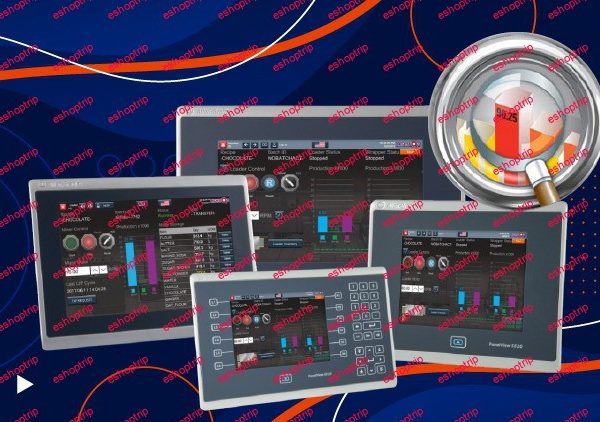Published 8/2024
Duration: dt3h34m | Video: .MP4, 1920×1080 30 fps | Audio: AAC, 44.1 kHz, 2ch | Size: 8.59 GB
Genre: eLearning | Language: English
Master SQL to Unlock Careers in Data Engineering, Data Analysis, Data Science and other Data Careers
What you’ll learn
Projects: Hands-on projects designed to challenge you to create optimized and efficient queries.
Coding Exercises: Practice writing and optimizing queries, using commands, clauses, and techniques learned throughout the course.
Database Objects: Create and manage databases, tables, views, and indexes to organize data and optimize performance in relational databases.
Commands: Insert, Select, Update, Delete, Grant, and Transaction to manage, query, and control data in databases.
Clauses: WHERE, ORDER BY, GROUP BY, HAVING, and WITH (CTEs) to filter, sort, group, and manage complex queries.
Datatypes: Int, Float, Varchar, Date, Time, DateTime, Blob to define and store data in tables.
Predefined Functions: COUNT, SUM, AVG, MIN, MAX, IFNULL, COALESCE for data manipulation and querying.
Operators: Arithmetic, Comparison and Logical operators to perform calculations and make logical comparisons in SQL queries.
Constraints: CHECK, NOT NULL, DEFAULT, and AUTO_INCREMENT to ensure data validity and automate data management in tables.
Keys: PRIMARY KEY, FOREIGN KEY, UNIQUE, Composite Key, Candidate Key and Alternate Key to establish relationships between tables.
Alias: Rename columns and tables, making queries more readable and results easier to understand.
Joins: INNER JOIN, LEFT JOIN, RIGHT JOIN, FULL JOIN, CROSS JOIN, SELF JOIN, UNION and UNION ALL to combine and retrieve related data from multiple tables.
Wild Cards: Pattern matching with wildcards ( % and _ ) in the LIKE operator to search for specific patterns within data.
Sub Queries: Operators like ANY, ALL, SOME, EXISTS, and NOT EXISTS, to perform nested queries and refine data retrieval.
Injection: Security vulnerability, and methods to protect against it to ensure secure database operations.
Master SQL: Follow best practices, writing efficient queries, and using advanced techniques to solve complex analytical problems with business insights.
Practice Tests: Timed practice tests with questions of all difficulty levels to simulate exam conditions and build confidence.
Quizzes: Engaging quizzes designed to test your knowledge and reinforce what you’ve learned.
Assignments: Assignments helps you to get clarity on concepts and improves applying your learning on problems.
E-Files: Included downloadable SQL files and theory concept files that are used in the course as a handy reference.
Career Preparation: Prepare for roles such as SQL Developer, Business Analyst, Data Analyst, Data Engineer, Data Scientist, ETL Developer, and Data Architect.
Requirements
A personal computer (Windows, macOS, or Linux) with internet access to download and install necessary software, files and to practice coding exercises.
No prior experience with SQL is required – we’ll teach you everything from the scratch.
An eagerness to learn new concepts, experiment with code, solve problems and develop projects.
Patience, Focus and Consistency are required.
Energy and Happiness are highly required.
Description
Unlock the power of SQL and transform your data skills with our comprehensive course designed for learners of all levels. Whether you’re a fresher or looking to refine your SQL expertise, this course offers a complete learning experience to help you master the language and become a proficient SQL professional.
I won’t bore you with unnecessary details. Check the below features and course content, then decide for yourself.
Course Features
Videos
Engaging video tutorials that break down complex concepts into easy-to-understand lessons.
Coding Exercises
Practice writing and optimizing queries, using commands, clauses, and techniques learned throughout the course.
Quizzes
Engaging quizzes designed to test your knowledge and reinforce what you’ve learned.
Assignments
Assignments helps you to get clarity on concepts and improves applying your learning on problems.
Practice Tests
Timed practice tests with questions of all difficulty levels to simulate exam conditions and build confidence.
E-Files:
Included downloadable SQL files and theory concept files that are used in the course as a handy reference.
Course Content
Database Management
Develop and manage databases, tables, views, and indexes to effectively organize and enhance the performance of your data in relational databases.
SQL Commands
Master essential SQL commands such as INSERT, SELECT, UPDATE, DELETE, GRANT, and TRANSACTION for comprehensive data management.
SQL Clauses
Utilize clauses like WHERE, ORDER BY, GROUP BY, HAVING, and WITH (CTEs) to filter, sort, group, and manage complex queries effectively.
Data Types
Understand and apply various data types including INT, FLOAT, VARCHAR, DATE, TIME, DATETIME, and BLOB for accurate data storage and manipulation.
Predefined Functions
Leverage functions such as COUNT, SUM, AVG, MIN, MAX, IFNULL, and COALESCE for efficient data aggregation and querying.
SQL Operators
Utilize arithmetic, comparison, and logical operators to perform calculations and logical evaluations in your SQL queries.
Database Constraints
Apply constraints like CHECK, NOT NULL, DEFAULT, and AUTO_INCREMENT to maintain data integrity and automate data management.
Keys
Learn about different keys, including PRIMARY KEY, FOREIGN KEY, UNIQUE, Composite Key, Candidate Key, and Alternate Key, to establish and enforce table relationships.
Aliases
Use aliases to rename columns and tables, enhancing query readability and making results more understandable.
Joins
Master various join techniques such as INNER JOIN, LEFT JOIN, RIGHT JOIN, FULL JOIN, CROSS JOIN, SELF JOIN, UNION, and UNION ALL to combine and retrieve related data from multiple tables.
Wildcards
Implement pattern matching with wildcards (%) and (_) in the LIKE operator to perform detailed searches within your data.
Subqueries
Utilize operators like ANY, ALL, SOME, EXISTS, and NOT EXISTS to perform nested queries and refine your data retrieval processes.
SQL Injection
Understand security vulnerabilities associated with SQL injection and learn protective measures to ensure safe database operations.
Advanced SQL Techniques
Follow best practices to write efficient queries and apply advanced techniques to solve complex analytical problems and gain business insights.
Career Preparation
Prepare for diverse roles such as SQL Developer, Business Analyst, Data Analyst, Data Engineer, Data Scientist, ETL Developer, and Data Architect.
By the end of this course, you’ll have the skills and confidence to work with SQL databases, perform complex data analysis, and ace job interviews. Enroll now and start your journey to becoming an SQL expert!
REMEMBER… I’m so confident that you’ll love this course that we’re offering a FULL money-back guarantee for 30 days! So it’s a complete no-brainer, sign up today with ZERO risk and EVERYTHING to gain.
So what are you waiting for? Click the buy now button and join the world’s highest-rated SQL course.
Don’t worry, we are with you to help. Join us today and take the first step towards mastering SQL. Be Happy!
Who this course is for
Students and Recent Graduates: College students or recent graduates in computer science, information technology, business, or related fields who want to add SQL proficiency to their skill set.
Beginners in Data Science and Analytics: Individuals who are new to the world of data and want to build a strong foundation in SQL to kickstart their careers in data science, analytics, or business intelligence.
Software Developers and IT Professionals: Developers or IT professionals looking to deepen their understanding of databases and improve their ability to interact with data within their applications.
Aspiring Data Professionals: Those who are pursuing careers as data analysts, data engineers, database administrators, or data scientists and need to develop or enhance their SQL skills.
Business Professionals: Business analysts, project managers, or marketing professionals who want to gain insights from data and improve their decision-making capabilities by learning how to query and analyze databases.
Anyone Interested in Data: Individuals from any background who are curious about data, eager to learn SQL, and looking to make informed decisions based on data analysis.
Homepage
https://www.udemy.com/course/ecl-sql-course










